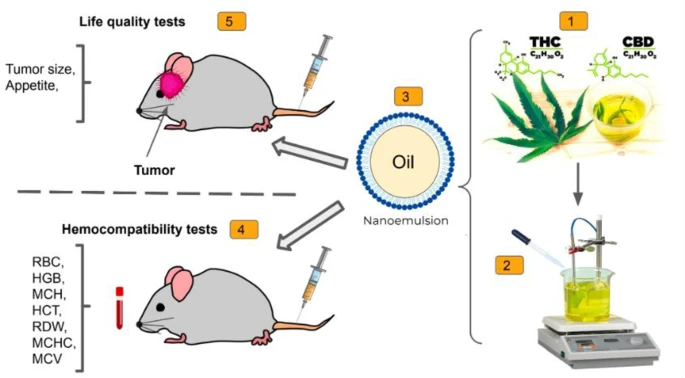Legal marijuana sales in Montana topped $27 million in September.

According to data released by the Montana Department of Revenue, total marijuana sales reached $27,520,406 in September. This is a slight dip from the record-breaking $29,716,881 sold in August, and is on par with the $28 million sold in September 2023.
The vast majority of the state’s total marijuana sales was purchased for recreational use, $23,965,392, with medical marijuana patients purchasing $3,555,014 worth of product. Sales data incudes dried marijuana flower, prerolls and concentrates, as well as a variety of marijuana-infused products like edibles, topicals and tinctures.
Continue reading


 Researchers from the University of Medical Sciences, University of Tehran, and North Khorasan University of Medical Sciences in Iran have developed a nanoemulsion designed to boost the effectiveness of two key cannabis compounds, THC and CBD, in treating this aggressive form of brain cancer. The study demonstrated that this innovative delivery method significantly reduced tumor size and extended survival in animal models, potentially offering a new therapeutic avenue for glioblastoma.
Researchers from the University of Medical Sciences, University of Tehran, and North Khorasan University of Medical Sciences in Iran have developed a nanoemulsion designed to boost the effectiveness of two key cannabis compounds, THC and CBD, in treating this aggressive form of brain cancer. The study demonstrated that this innovative delivery method significantly reduced tumor size and extended survival in animal models, potentially offering a new therapeutic avenue for glioblastoma.



 Within these sales, $12.5 million was attributed to “usable cannabis,” $5.6 million to marijuana concentrates, and $3.1 million to “infused products.”
Within these sales, $12.5 million was attributed to “usable cannabis,” $5.6 million to marijuana concentrates, and $3.1 million to “infused products.”


